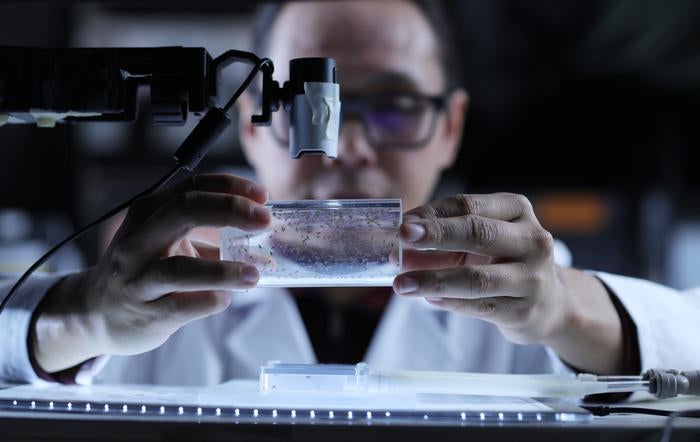You might want to reconsider that espresso martini.
Drinking coffee, or any caffeine for that matter, at night can keep you awake – but researchers say now it can also make you more impulsive.
Fruit flies became “reckless” fliers after consuming food laced with caffeine, the stimulant that gives coffee and peoples’ nervous system a boost, a recent study found. That means its not just the alcohol in that espresso martini that might lead to questionable choices.
“Caffeine is the most widely consumed psychoactive substance in the world, with about 85 percent of adults in the U.S. using it regularly,” Dr. Paul Sabandal, a research assistant professor at the University of Texas at El Paso’s department of biological sciences, explained in a statement. “Given caffeine’s popularity, we wanted to explore whether additional factors influence its impact on behavioral control.”
Researchers looked at the response in both male and female fruit flies. This species has genetic and neural parallels with humans.
The researchers designed experiments testing the impacts of the more than two dozen buzzy subjects’ caffeine intake at different doses between one and 10 milligrams per milliliter during both the night and the day and in combination with sleep deprivation.
The experiments showed that fruit flies consuming caffeine at night were more hasty when flying against a strong wind.
“Under normal circumstances, flies stop moving when exposed to strong airflow,” Dr. Erick Saldes, a former postdoctoral research fellow at the university who is now at the University of Illinois College of Medicine Peoria, said. “We found that flies consuming caffeine at night were less able to suppress movement, displaying impulsive behaviors such as reckless flying despite these aversive conditions.”
This was even more true for female fruit flies than in males, despite having the same levels of caffeine. The researchers said that could point to genetic or physiological factors at work, because the flies don’t have human hormones.

Another mystery to solve is why flying during the day did not lead to the same results.
Still, the team warns that the findings could have negative implications for women and people who work nights. Previous research from McGill University had blamed caffeine consumption for impulsive shopping habits.
“Uncovering these mechanisms will help us better understand how nighttime physiology and sex-specific factors modulate caffeine’s effects,” said Dr. Kyung-An Han, a professor of biological sciences and the Associate Dean at the school’s College of Science.
The study was published in the journal iScience.
Viral recipe for espresso martini with parmesan cheese divides viewers
Starbucks ditching mobile-order stores which lack ‘warmth’ as sales fall
What on Earth is ‘Baristaphobia’?
DoorDash introduced the Iced Coffee Index to monitor consumer stress
Chick-fil-A announces new limited-time menu items for fall
The signs of childhood brain cancer every parent should know
DoorDash introduced the Iced Coffee Index to monitor consumer stress







